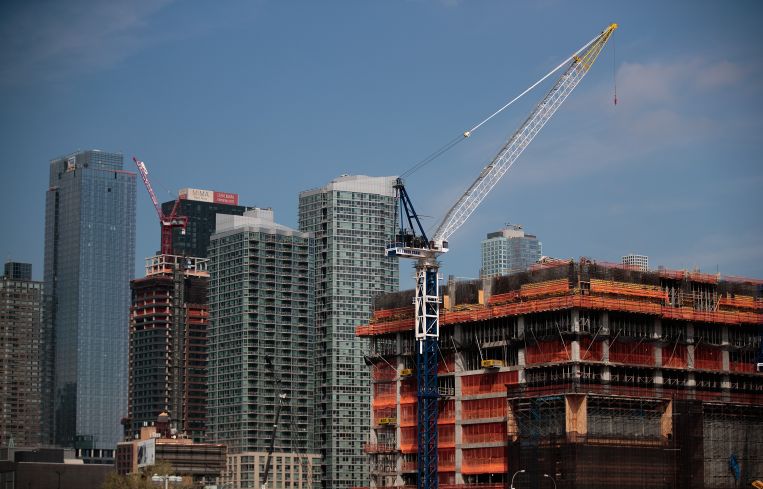As Business Cycle Matures, Mizuho Cautions REIT Investors to Watch Their Step
By Matt Grossman January 19, 2018 4:13 pm
reprints
Investors in U.S. real estate investment trusts may have to tread carefully in 2018, as an aging economic expansion and rising interest rates collude to stymie dependable growth across asset classes.
That’s the conclusion of a new Mizuho Securities report that warns REIT investors to act more like choosy stock-pickers this year if they want to achieve short-term gains.
“If you’re an investor looking for growth, you’re not necessarily coming to the REIT party,” said analyst Haendel St. Juste, one of the report’s authors. “There are not a lot of obvious sector winners.”
Indeed, U.S. REITs in all sectors lagged far behind equity performance last year: the S&P 500 gained nearly 20 percent in 2017, whereas REITs ended just where they had started 12 months earlier, up only half a percent since January 2017.
Even after all that stock appreciation REITs still look relatively expensive. Mizuho projects that the S&P, currently priced at about 20 times future earnings, will continue to charge ahead in 2018, suggesting an earnings growth target of about 25 percent. U.S. REITs are similarly priced, St. Juste said, but only promise earnings growth in the mid single digits this year.
The terrain ahead could be made especially difficult by demand-side responses to the interest rate environment, according to the analyst. REITs could take the news hard if the Federal Reserve Bank, under the leadership of incoming chairman Jerome Powell, tightens monetary policy and causes interest rates to rise, as Mizuho expects it might later this month. Higher rates raise the cost of capital for real estate funds, and may also degrade the value of underlying assets—especially single-family homes, as borrowers face a harder time securing affordable mortgages.
After the dust settles, St. Juste predicted, REITs may surge ahead again, however, as the market grows comfortable with higher treasury rates.
Investors will “step back and say, ‘What’s really going on here?’ ” St. Juste explained. “The economy’s growing and employment is strong—all things which are good for real estate demand. The backdrop is near idyllic” for the expansion to continue.
This dynamic could play out even if investors have already anticipated and priced in the Fed’s action, the Mizuho analyst said. If the central bank caused rates to rise, rules-based traders may sell off their trust shares even if they are not taken by surprise, causing a lull in the market before investors with a broader perspective reenter the scene.
The report also considers the role that new supply will play in shaping asset classes’ disparate fates. A boon to the much maligned retail sector could come in the form of drastically reduced levels of new development of malls and shopping centers, which, along with the tax cut, could help investors in the sector avoid analyst’s most dire predictions from the beginning of last year, the Tokyo-based bank said. One retail REIT, Simon Property Group, even retains a “Buy” rating from Mizuho.
On the other hand, oversupplied markets in New York, Seattle, Dallas and California could hold back multifamily performance this year, as the level of fresh assets reaches about 2.5 percent of existing stock.
Still, a continuing stream of new families families entering the housing market could keep demand strong.
“Projections over the next five years call for an average of 1.3 million new households each year,” St. Juste said. “That’s certainly a good dynamic.”



